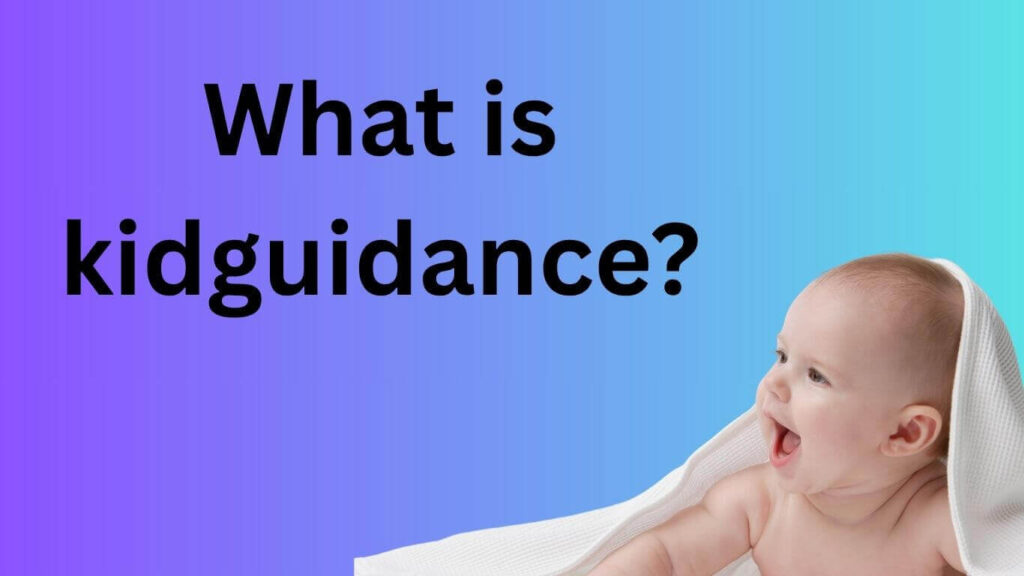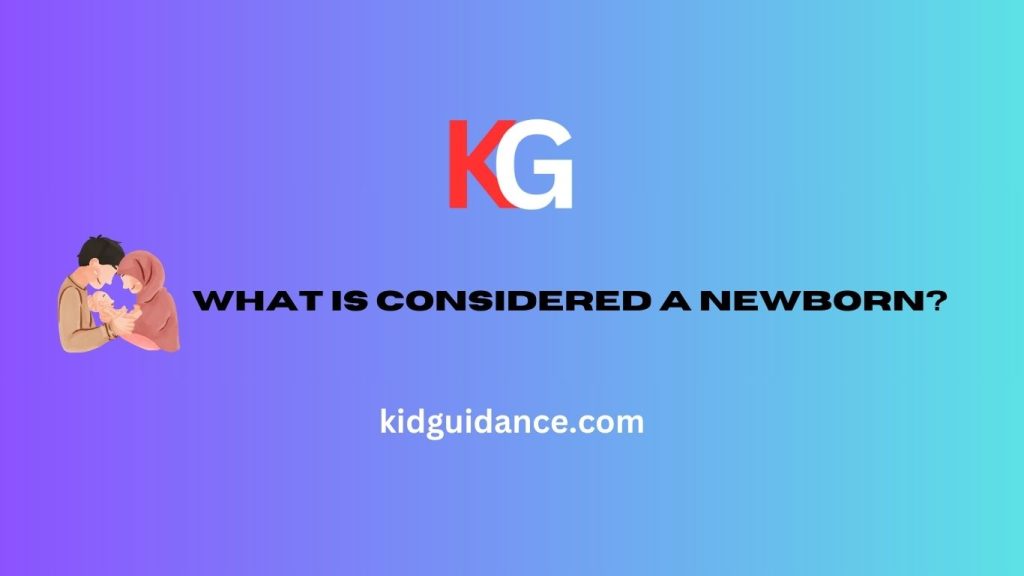The newborn stage is full of sleepless nights, tiny firsts, and emotional highs and lows, usually lasting from birth to around two to three months. But how can you tell when this phase ends? Milestones like more muscular head control and longer stretches of sleep signal your baby is growing into the next stage. These changes can be a reassuring reminder that every late-night feeding is part of their fantastic progress.
Parenting during this time is a mix of joy and challenge, but knowing what to expect makes it easier. Whether savouring those first smiles or seeking guidance during challenging moments, KidGuidance is here to help you through every step.
When Does the Newborn Stage End?
The newborn stage usually ends between 4 and 12 weeks of age, although definitions vary:
- WHO: Describes the infant stage as the first 28 days of life.
- Medical experts: Commonly extend it to 12 weeks.
- Paediatricians: Some suggest it lasts until around 4 to 6 weeks.
After this phase, your baby enters the infant stage, which continues until their first birthday. Key milestones signalling this transition include more muscular head control, longer sleep stretches, and more social interaction. These moments help you recognize that your baby is growing beyond the newborn stage.

How Long Does the Newborn Stage Last?
The newborn stage typically lasts from birth to around 8 weeks, though some define it as up to 12 weeks. During this phase, babies sleep often, feed frequently, and display reflexive movements. Around 2 months, changes like improved head control, longer awake times, and more social interactions signal the start of infancy.
Key milestones include longer nighttime sleep as babies’ circadian rhythms stabilize and greater responsiveness to sounds and smiles. If you’re unsure about age-related terms like “newborn” versus “infant,” check our guide on What Is Considered a Newborn to better understand each phase of your baby’s growth.
When Does the Newborn Stage Get Easier?
Many parents notice things improve around the 6 to 8-week mark when babies become more alert, cry less, and settle into a feeding and sleep routine. By 3 months, babies often sleep longer stretches, coo in response, and show better head control. Each baby is unique, but these changes often help parents feel more confident and connected.
The Newborn Stage: What You Need to Know
The newborn stage lasts from birth to about 2 months (0-8 weeks), but sometimes it can last up to 12 weeks. When babies are 2 months old, they start to show signs of becoming infants. They can hold their heads up better, sleep longer, and interact more with the world around them.
How Long Is the Newborn Stage?
The length of the newborn stage depends on who you ask:
- WHO (World Health Organization) Says the newborn stage lasts for the first 28 days of life.
- Most People Believe it lasts for the first 2-3 months.
What Happens During the Newborn Stage?
- Age Range: 0 to 2 months
- Duration: Birth to 8 weeks (but sometimes up to 12 weeks)
Sleep Deprivation
- Newborns sleep in short bursts of 2–4 hours because they must eat often.
- They sleep around 14–17 hours daily, but not all at once.
Most parents lose about 109 minutes of sleep per night during the first few months (Sleep Foundation, 2023).
Frequent Feedings
- Newborns eat every 2–3 hours; each feeding session lasts 20–40 minutes.
- In 2021, 83.2% of newborns in the U.S. were breastfed at some point, but only 58.3% were exclusively breastfed through 6 months (CDC).
Crying and Colic
- About 20% of newborns go through colic, where they cry a lot for no apparent reason.
- Colitis usually peaks around 6 weeks and gets better by the time babies are 3 months old.
Parental Adjustment
- Birth mothers usually take 6–8 weeks to recover physically from childbirth.
- It can take 3–4 months for parents to adjust to life with a baby.
How to Get Through the Newborn Stage
Rest Whenever You Can
- Sleep when your baby sleeps, even if it’s during the day.
- Try taking turns with your partner to cover nighttime feedings.
Start a Simple Routine
By 6 weeks, try to create a bedtime routine like giving your baby a bath or reading a story to help them sleep better.
Ask for Help
- Family, friends, or postpartum professionals can help you when you need a break.
- Use virtual consultations and online parenting groups to get advice or share experiences.
Bond with Your Baby
Spend time holding your baby, doing skin-to-skin contact, and talking to them. This helps you build a strong connection.
Take Care of Yourself
Eat healthy meals, stay hydrated, and take small breaks. Even a few minutes of quiet time can help you feel better.
Use Helpful Apps
Baby-tracking apps like Huckleberry or Baby Tracker help you keep track of feeding times, sleep schedules, and diaper changes.
Modern Tools That Make Life Easier
- Virtual Doctor Visits: You can have video calls with pediatricians or lactation consultants from home.
- Online Support Groups: Parenting forums and Facebook groups let you talk to other parents for support and tips.
- Delivery Services: Food delivery apps and baby supply subscriptions save time and energy.
Encouraging Facts
- By week 12, 85% of parents feel more confident about caring for their baby (Cleveland Clinic, 2024).
- Babies usually start sleeping for 4–6 hours at a time and smiling socially between 6–8 weeks
Why You Might Be Looking Forward to the End of the Newborn Stage
The newborn stage is exciting but also exhausting. Here are five reasons why many parents look forward to moving past it:
More Sleep
Newborns wake up every 2-3 hours, so parents don’t get much rest. By 8-12 weeks, babies usually sleep longer at night, giving parents more time to sleep.
Feeding Becomes Easier
Newborns eat every 2-3 hours in the first few weeks, making the day feel nonstop. When babies are 3 months old, they usually start eating every 3-4 hours, giving parents more breaks.
More Smiles and Interaction
Newborns mostly sleep and eat, but after 6-8 weeks, they start smiling, making sounds, and looking at you more. These moments make it easier to bond and enjoy time with your baby.
Less Crying and Colic
Many newborns go through a fussy stage where they cry often, sometimes for hours. This is frequently due to colic, which usually peaks around 6 weeks and gets better by 12 weeks. Once this stage passes, things feel much calmer.
Feeling Stronger and More Recovered
The first few weeks after giving birth are challenging for the body. Most parents feel stronger and more adjusted to their new routines by the end of the newborn stage.
How Your Baby’s Sleep Changes
- 0-4 Weeks: Babies wake up every 2-3 hours to eat.
- 4-8 Weeks: Nighttime sleep can stretch to 4-6 hours as their sleep schedule becomes more regular.
- 8-12 Weeks: Many babies sleep 6-8 hours at night, though they still take naps during the day.
Feeling Alone During the Newborn Stage
Many parents feel isolated during this time. About 35% of parents in the U.S. don’t have family nearby to help. You might feel overwhelmed when visitors stop coming, and your partner returns to work. Asking for help from friends, virtual support groups, or hiring a postpartum doula can make a big difference.
Emotional Ups and Downs
The newborn stage can make your emotions feel like a roller coaster. Stress from taking care of a newborn, changes in hormones, or not getting enough sleep can all lead to sadness, worry, or mood swings. More than 80% of new moms have the “baby blues,” and one in seven has postpartum depression. Talking to someone or getting professional support can help if you feel like this.
Going Back to Work
Many parents return to work when their baby is only 6-12 weeks old. This can be hard because you’re still adjusting to life with a newborn. Managing work, pumping milk, and staying on top of your baby’s needs can feel overwhelming. Try asking for flexible hours or remote work to make the transition easier.
Handling Other People’s Expectations
Some friends and family members may expect you to visit, share baby updates, or “get back to normal” quickly. This can be stressful when you’re focused on caring for your baby. It’s okay to set boundaries and let people know what you need.
Why Things Get Better After the Newborn Stage
By the time your baby is 3-4 months old, things often start to improve:
- Your baby’s routine becomes more predictable.
- You’ll feel more confident as a parent.
- Your baby will sleep longer stretches.
- There will be more fun moments as your baby becomes more interactive.
The newborn stage is challenging, but it’s temporary. Things will get easier with time, and you’ll build more joyful memories with your baby. You’ve got this!
Newborn Changes and Challenges
What Happens to a Newborn’s Body?
- Weight Gain: Newborns gain 5-7 ounces every week and get back to their birth weight by 2 weeks.
- Height Growth: They grow 1 inch every month.
- Head Growth: Their head grows 0.5 inches each month as the brain grows fast.
What Senses and Learning Improve?
- Vision: Newborns see clearly only 8-12 inches away and like looking at faces.
- Hearing: They can hear well and know their parents’ voices.
- Learning: Babies use their senses to learn and start reacting to sounds and sights.
How Do Newborns Sleep and Eat?
- Sleep: They sleep 16-18 hours a day but wake up every 2-3 hours.
- Feeding: They eat every 2-3 hours, whether breastfed or bottle-fed.
How Do Newborns Move?
- Reflexes: They show reflexes like grabbing fingers and turning their head toward touch.
- Strength: Tummy time helps babies lift their heads briefly by the end of the first month.
What Problems Happen During the Newborn Stage?
For Babies:
- Tummy Problems: They may have gas or spit-up because their stomachs are still growing.
- Irregular Sleep: They wake often and don’t have a set sleep schedule.
For Parents:
- Lack of Sleep: Parents get only 4-5 hours of sleep in broken time slots.
- Feeding Issues: Some babies have trouble latching or swallowing milk.
- Crying: Some babies cry for hours due to colic, which affects 1 in 5 newborns.
- Postpartum Feelings: New mothers can feel sad or stressed after birth due to hormone changes.
How Can Parents Track Baby Growth?
- Weight: Babies should regain their birth weight by 2 weeks.
- Height: Babies should grow about 1 inch every month.
- Head Size: The head should grow 0.5 inches every month.
Look Out for Problems:
- No weight gain after 2 weeks.
- Trouble eating or swallowing.
- No reaction to noises or lights by 6 weeks.
What Parents Can Do:
- Track wet and dirty diapers (6-8 per day).
- Keep feeding notes and weigh-ins.
- Visit the doctor for regular check-ups.

Helping Your Baby Grow:
Understanding how babies grow helps parents notice changes and handle challenges. Regular check-ups and asking for help when needed make things easier for both parents and babies.
FAQs
When Does the Newborn Stage End?
The newborn stage usually ends between 8-12 weeks. Some doctors define it as the first 28 days, while others extend it to 3 months.
How Do I Know When My Baby is No Longer a Newborn?
Look for these signs:
- Longer night sleep (4-6 hours).
- More alert and interactive.
- Predictable feeding patterns.
- Stronger neck control.
Does the Newborn Stage Get Easier After 6 Weeks?
Yes, many parents see changes after 6-8 weeks:
- Babies start smiling socially.
- Sleep becomes more predictable.
- Crying and colic may ease.
What Happens After the Newborn Stage?
This is the infant stage, where babies:
- Become more playful and active.
- Sleep longer at night.
- Start eating solid foods around 4-6 months.
- Gain more strength and mobility.
Do All Babies Follow the Same Timeline?
No, every baby develops at their own pace. Some babies grow faster, while others take more time.
What Changes Happen When the Newborn Stage Ends?
Common changes include:
- Better sleep and longer naps.
- Less crying and more play.
- Improved head and neck control.
- Clearer vision and tracking of objects.
Is Postpartum Recovery Done When the Newborn Stage Ends?
Physical recovery for most birth parents finishes by 6-8 weeks, but emotional healing may take longer.
Does Parenting Get Easier After This Stage?
Many parents feel more confident after the newborn stage. Babies become more predictable, making routines easier to manage.
What Milestones Show the Newborn Stage is Over?
Key milestones:
- Smiling and cooing regularly.
- Stronger neck control during tummy time.
- Following objects with their eyes.
- Recognizing and reacting to familiar voices.
What if My Baby Still Seems Like a Newborn After 3 Months?
If your baby isn’t reaching key milestones, like holding their head up or responding to sounds, talk to your doctor for advice.




